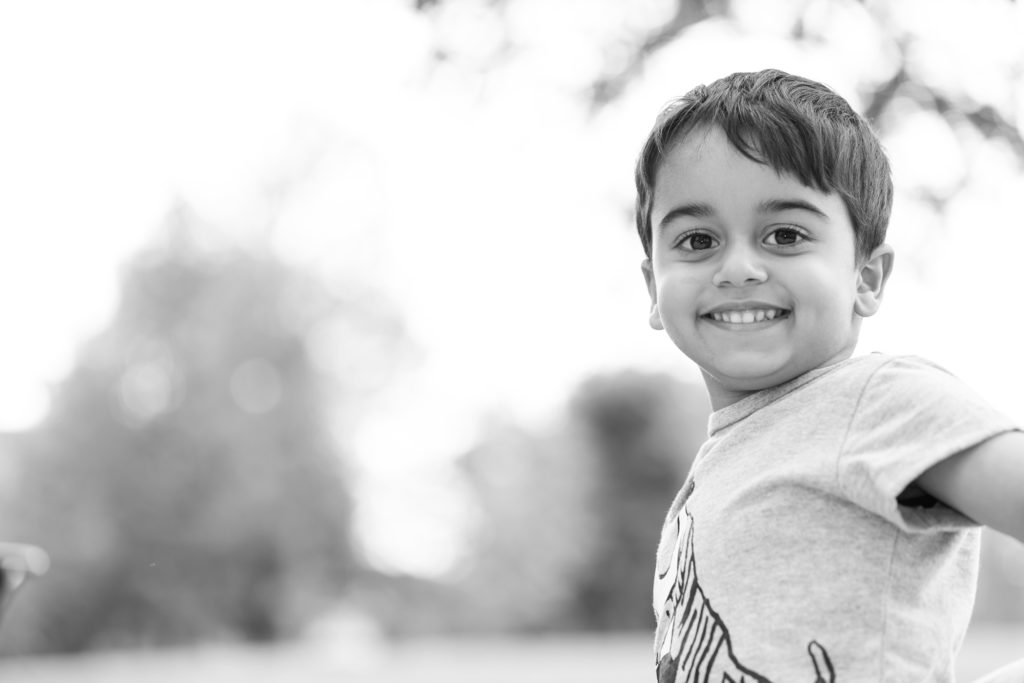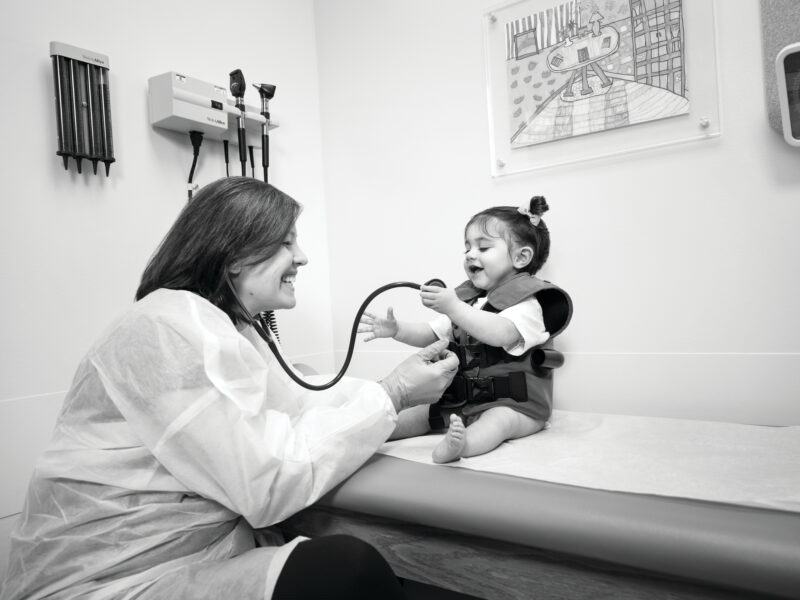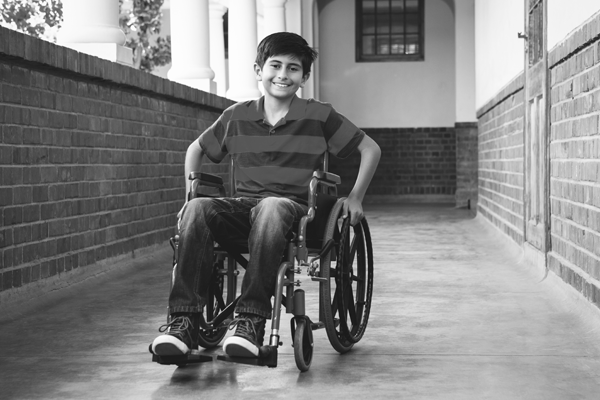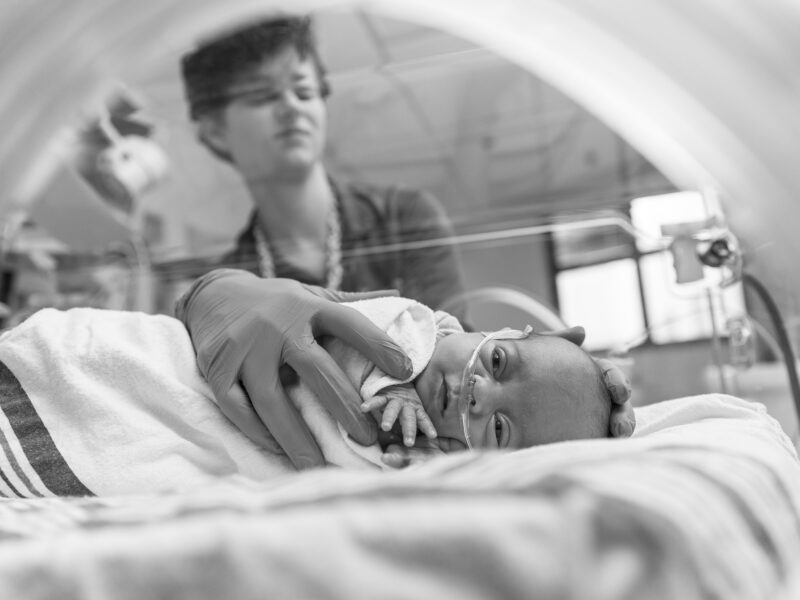Video Game-Based Therapy Makes Cardiopulmonary Rehabilitation Program More Patient-Centric
Video Game-Based Therapy Makes Cardiopulmonary Rehabilitation Program More Patient-Centric https://pediatricsnationwide.org/wp-content/uploads/2021/08/MicrosoftTeams-image-1-1024x683.jpg 1024 683 Katie Brind'Amour, PhD, MS, CHES Katie Brind'Amour, PhD, MS, CHES https://pediatricsnationwide.org/wp-content/uploads/2021/03/Katie-B-portrait.gif- August 30, 2021
- Katie Brind'Amour, PhD, MS, CHES

Patients can benefit from traditional therapeutic services as well as engaging, updated approaches to improve lung capacity and fitness.
The Cardiopulmonary Rehabilitation Program at Nationwide Children’s Hospital, launched in 2005 after a year-long pilot, has long offered services for patients to improve their ability to engage in exercise, school and activities of daily living. As the program has expanded to address patient needs and optimize the therapeutic impact of training sessions, it has continued to deploy the latest in innovative cardiopulmonary rehabilitation technologies — including video games.
“We are treating a generation of kids who have screens and digital technology as a big part of their lives, and when children need to incorporate physical activity into their routines on a regular basis, it’s critical to find ways they can achieve the rehabilitation they need to help with their condition while also enjoying themselves,” says Alpa Patel, MD, medical director of the Cardiopulmonary Rehabilitation Program at Nationwide Children’s and one of the minds behind the introduction of screen-based therapies to the program. “Interactive video games and sports simulators offer the opportunity to get them easily engaged and can even introduce them to some physical activities that wouldn’t be feasible without a digital element.”
Screen-based activities include a balance board, rhythmic dancing and interactive games such as bowling (to improve manual dexterity) and strategy games to improve problem-solving skills. Digital options are often coupled with trampolines, physical board games, jump ropes and other tools as therapists custom-build programs to address symptoms of medical conditions such as cystic fibrosis, asthma, obesity, sickle cell disease, congenital heart diseases, recent surgery, complications that arise following COVID-19 infection and more.
“Most children are in the program for at least 6 weeks, with about three 2-hour sessions per week, so having a variety of exercise options keeps the sessions fun and varied and allows us to really tailor our approach for each patient,” says Dr. Patel. “The more fun we can make it, the more likely patients are to comply with their treatment program, get excited about fitness and continue with prescribed regimens at home.”
Nationwide Children’s is the only pediatric hospital in Ohio to be certified by the American Association of Cardiovascular and Pulmonary Rehabilitation (AACVPR) for both cardiac and pulmonary rehabilitation, and was the first-ever pediatric program certified by the AACVPR in 2009. The program just received another 3-year certification, thanks in a large part to the efforts of Nancy Wright, RRT, RCP, AE-C and Theresa Miller, RRT, RCP, AE-C, CPFT, co-coordinators of the Cardiopulmonary Rehabilitation Program. The two work with patients and families to execute effective personalized respiratory care programs and oversee the staff utilizing screen-based therapies.
The program also connects patients with a host of other services, which may include nutrition education, massage therapy, behavioral health services, respiratory therapy, recreational therapy, occupational therapy, services provided by social workers, pharmacy services and even school teacher involvement, based on their individual needs. Once children have made sufficient progress, they are prescribed a customized home program to continue therapy; the plan is also communicated to their referring physician.
“The goal is that, by the end of their program, children have greater understanding of how to manage their condition and have improved confidence, strength and endurance for returning to school or other activities,” says Dr. Patel.
The Cardiopulmonary Rehabilitation Program accepts referrals online and through EPIC.
About the author
Katherine (Katie) Brind’Amour is a freelance medical and health science writer based in Pennsylvania. She has written about nearly every therapeutic area for patients, doctors and the general public. Dr. Brind’Amour specializes in health literacy and patient education. She completed her BS and MS degrees in Biology at Arizona State University and her PhD in Health Services Management and Policy at The Ohio State University. She is a Certified Health Education Specialist and is interested in health promotion via health programs and the communication of medical information.
-
Katie Brind'Amour, PhD, MS, CHEShttps://pediatricsnationwide.org/author/katie-brindamour-phd-ms-ches/April 27, 2014
-
Katie Brind'Amour, PhD, MS, CHEShttps://pediatricsnationwide.org/author/katie-brindamour-phd-ms-ches/April 27, 2014
-
Katie Brind'Amour, PhD, MS, CHEShttps://pediatricsnationwide.org/author/katie-brindamour-phd-ms-ches/April 27, 2014
-
Katie Brind'Amour, PhD, MS, CHEShttps://pediatricsnationwide.org/author/katie-brindamour-phd-ms-ches/April 28, 2014
- Posted In:
- Clinical Updates
- In Brief







